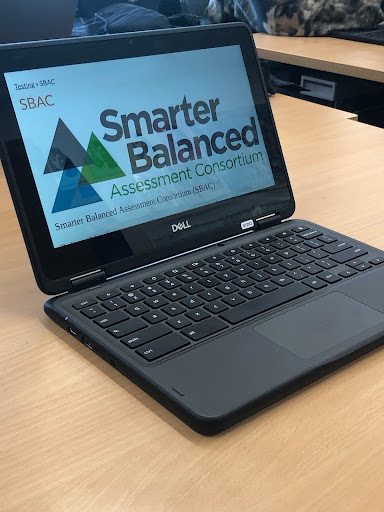Last week, all sophomores took the Smarter Balanced Assessment Consortium (SBAC) test. The results from this test help the state education department see how Washington High School students are doing in math and English.
The federal government mandates public school testing at specific grade levels, but each state chooses the test they use. Reykdal recalls that “we chose the SBAC test because accommodations can be made for those with 504s or IEPs.“
During a recent press conference for Washington Student Journalists, Washington State Superintendent of Public Instruction Chris Reykdal explained that students with a 504 or an IEP can request accommodations from their school district. “Students should reach out to their districts and say, ‘I need these accommodations for the SBAC test,’ if the student’s 504 or IEP already says that the student needs certain testing accommodations,” remarks Reykdal.
Teenagers all over the state have been choosing to waive taking the SBAC test in the hopes of lowering their stress levels and making the best choice for their mental health. Cassandra Pixley, a sophomore student at OHS, is one of these students. Due to personal reasons, she chose to opt out of the SBAC.
To skip the SBAC, high school students must be able to meet their graduation pathways in another way. This can be done through certain credits at the high school level. Pixley is on track to graduate in 2026 without the exam because she has completed two CTE courses.
There are restrictions in place that must be met. Federal law requires a 95% participation rate in the SBAC test to avoid repercussions. During the 2021-2022 school year, the percentage of kids who didn’t test for math was higher than those who didn’t test for English. In 2022-2023, more kids took the test, but more kids waivered out of math compared to English.
The overall goal of the SBAC is for the state’s government to see where students are succeeding and where students need help. With this test, the state can support the kids who need it.




